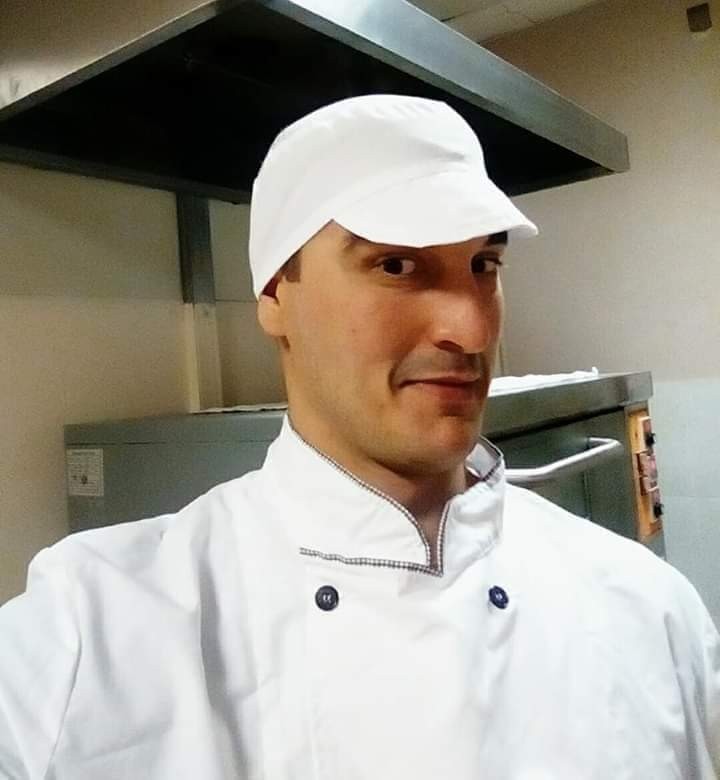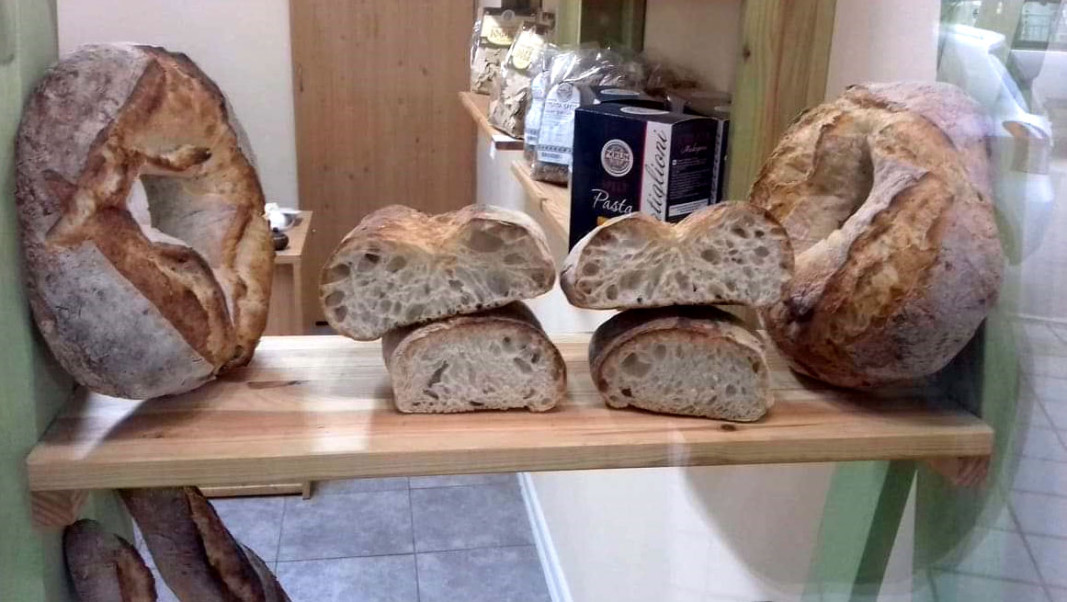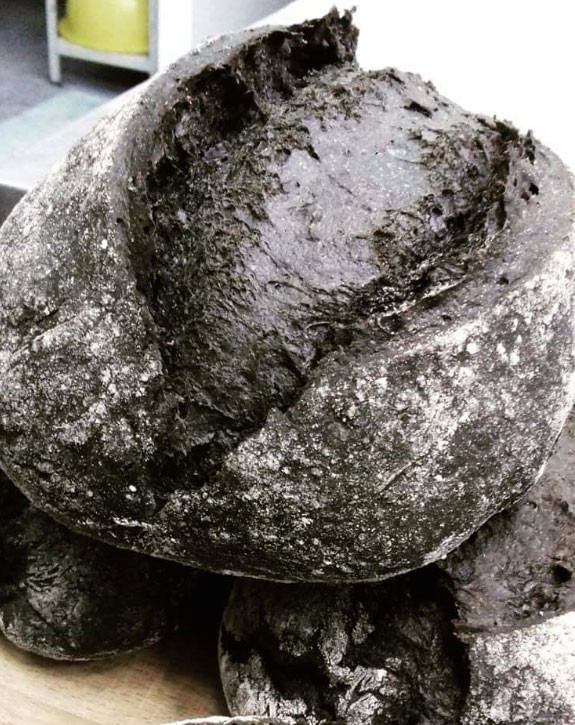While his freshly risen bread was still in the oven, the young Bulgarian baker Lyubomir Dzhekov took us back to the time when he found his vocation- to make bread from Bulgarian spelt and live leaven.
 My family was planting spelt for 4 or 5 years in Ruse district. We grinded the grain in a stone mill. Then we used the spelt flour to make fresh leaven and spelt bread in home conditions. We gave the bread to friends and neighbors. They liked it a lot and told us that there was huge difference between homemade spelt bread and the bread sold in the shop.
My family was planting spelt for 4 or 5 years in Ruse district. We grinded the grain in a stone mill. Then we used the spelt flour to make fresh leaven and spelt bread in home conditions. We gave the bread to friends and neighbors. They liked it a lot and told us that there was huge difference between homemade spelt bread and the bread sold in the shop.
Lyubomir Dzhekov made his first attempts in baking in 2015. Since then he gained precious experience and now he is a popular baker in Ruse.

I am 31 years old. We own a small bakery and a bread store downtown Ruse. In the beginning, we made bread only by hand without any bread mixers. In 2013 and 2018, I attended two-week training courses in boutique bakeries in Sofia. There, I managed to learn most of the subtleties of bread making.

 According to the young baker, the unique taste of the freshly baked bread is due to the fermentation. The leaven his family makes is a natural and live product, because it contains elements that help digestion. Only a small piece of bread can satiate you, especially if it is made of whole grain like spelt, rye, buckwheat, etc. This is so, because they are rich in nutrients essential for our body, Lyubomir says and adds: Unlike the conventional yeast, the homemade leaven slows down the bread making process significantly.
According to the young baker, the unique taste of the freshly baked bread is due to the fermentation. The leaven his family makes is a natural and live product, because it contains elements that help digestion. Only a small piece of bread can satiate you, especially if it is made of whole grain like spelt, rye, buckwheat, etc. This is so, because they are rich in nutrients essential for our body, Lyubomir says and adds: Unlike the conventional yeast, the homemade leaven slows down the bread making process significantly.
 The young Bulgarian baker from Ruse likes to experiment:
The young Bulgarian baker from Ruse likes to experiment:
We use the homemade yeast to make bread only. The other pastry products and sweets are handmade. We made some of the recipes for them and took some recipes from our mothers and grandmothers. We make several types of bread: white rustic bread with rye sprouts and several types of seeds, a Danish wholegrain bread with spelt only, rye and wheat bread, rye bread, brown bread, etc. Our brown bread with activated charcoal made of several types of flour and powdered charcoal is the most extravagant bread in our menu. It looks completely black from the inside and outside. This bread comes from Asia. Then, it became popular in the USA and later it was brought to Western Europe and Bulgaria. Some bakeries in Sofia, Plovdiv and Varna have been making it for two years already. We are the only ones in Ruse who make bread with charcoal.
Lyubomir Dzhekov works in the family company with his mother and father. My mother sales the bread at the bread shop. Thanks to her, I can spend more time in the bakery. I owe everything in my life to my family, Lyubomir says.
How a young baker competes with the huge bread making industry?

I am not competing with anyone, the young baker says and continues: I am trying to compete with myself only-this is my biggest challenge. I entirely deny the factory-made bread. I believe that people must eat real, not factory bread. The flour must be made of selected grain, which has to be well grinded. We should not use feed wheat to make bread. Unfortunately, 70% of the bread is made of feed wheat. We need strong connection between farmers, millers and bakers, in order to improve the whole process and avoid making mistakes. However, this link was broken long time ago in Bulgaria. Now, I am able to make that connection which makes me very happy.
What did the bread teach you?
It changed my personality. It taught me to be patient and now I know that good things do not happen easy and quickly. Everything requires a lot of hard work and perseverance, many mistakes and failures, but we should never give up and should try to improve both ourselves and our products. This is the road to a real personal development, Lyubomir Dzhekov says and takes the last batch of aromatic spelt bread out of the oven.
English version: Kostadin Atanasov
Photos: private libraryFrom today, residents of Stara Zagora, young and old, can send their letter to Santa Claus. A letterbox has been set up in the foyer of the city's State Puppet Theatre to collect messages for Father Christmas. The cultural institution guarantees that..
A Christmas tree with Bulgarian decorations has been placed in a central location at the Griffin Museum of Science and Industry in Chicago. For the fifth consecutive year, Bulgarians living in Chicago crafted the lavish decoration of the Bulgarian..
The usurpation of cultural heritage is one of the many inevitable consequences of any military conflict, both historically and today. Until the end of the war in Ukraine, it is impossible to adequately analyse the extent of the damage caused to the..

+359 2 9336 661
